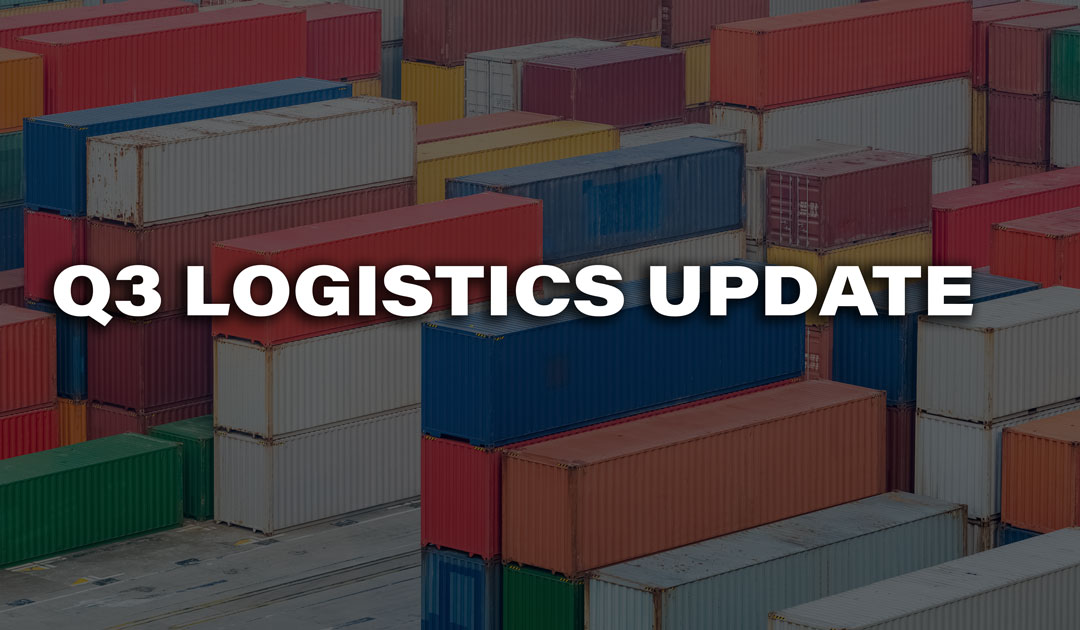Q3 Logistics Update From Customodal CEO Mike Eberl
Fall is here! My favorite season of the year. There is something about the crispy cool air, the crunchy colorful leaves, and how the sky just seems more clear here in Central Wisconsin at this time of year. I even look forward to the annual return of the Pumpkin Spice Latte!
Now, onto the world of freight…
On a global scale, two geopolitical events—the conflicts in Ukraine and Gaza—have been impacting global supply chains and the availability of commodities. Most notably, oil and energy prices are on the rise. Since oil plays a pivotal role in transportation, this increase is likely to keep shipping costs stable, even as other costs decline.
In the LTL (Less Than Truckload) market, there’s an ongoing adjustment following Yellow’s cessation of operations. Initially, there was a rush to relocate Yellow’s freight to ensure smooth movement. Now, both carriers and shippers have had time to evaluate the situation. Carriers have adjusted their pricing strategies to ensure profitability with this new influx, and shippers have assessed carrier capacity and service quality. We still maintain our original estimate that it will take 6 to 9 months for the market to fully absorb the impact of Yellow’s closure, which means we should see this disruption recede by Q1-2024.
In the world of digitalization, the LTL industry has seen advancements with the Digital LTL Council, a division of the National Motor Freight Traffic Association, initiating an LTL eBOL (electronic Bill of Lading) industry standard in 2019, which was rolled out in July 2023. Companies with an API-first approach, such as Priority 1, are experiencing enhanced tracking and improved information exchange with carriers thanks to this initiative. Once fully implemented, the LTL eBOL initiative will streamline LTL paperwork, much like small parcel shipping, where all necessary information is contained in a digital label.
At the same time, our growing reliance on digital commerce makes us more vulnerable to cyber incidents, exemplified by the recent attack on Estes Express. While Estes has admirably managed to keep freight moving despite their compromised systems, it underscores the potential risks for any company. Such incidents can have significant consequences and require weeks or even months to recover from. We stand in support of Estes and applaud their efforts during this challenging period.
The truckload market continues to exhibit weakness, with demand considerably lower than it was two years ago, leading to lower prices. It’s remarkable that, even after over 30 years in the industry, we still struggle to effectively manage business cycles. Currently, shippers are benefiting from favorable rates, and we’re securing excellent rates for our clients every day. The future trajectory will depend on factors such as high interest rates, labor strikes, and inflation. An uptick in truckload prices and shrinking capacity could serve as an early indicator of economic growth.
Both ocean freight and air freight are experiencing reduced rates due to slower freight flows, leaving us eagerly awaiting signs of where the economy is headed.
In October, I had the opportunity to visit Washington DC to engage with lawmakers regarding the concerning rise of fraudulent actors in the trucking industry. These bad actors are not only driving up costs but also compromising safety.
As we approach the end of 2023 and begin planning for 2024, let’s connect to review your supply chain and logistics strategy and establish mutual goals for the upcoming year.
Customodal is here to help you navigate the best strategies to manage your supply chain logistics.
Mike Eberl, CEO


